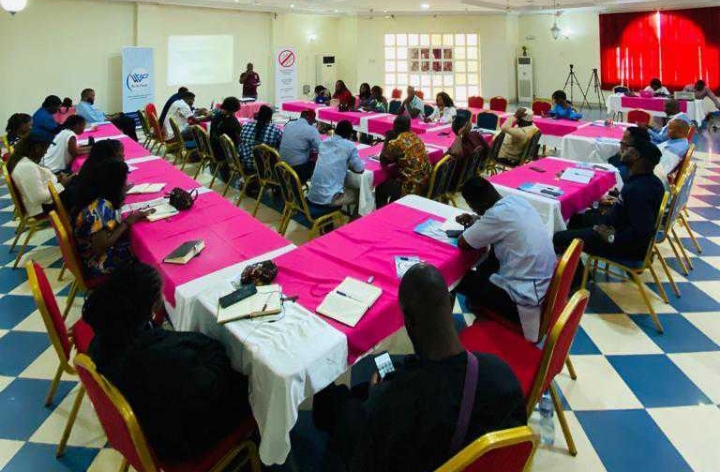By Etido Okon
Environmental Activists in the Niger Delta region of the country have chatted and proffered a strategy that will help oil-producing Host Communities in the region.
This was in a two-day strategic workshop with the theme ‘no restoration, no divestment’ held in Eket, Akwa Ibom State, was to x-ray a paradigm of the common impacts faced by communities blessed with natural resources and craft a common solution that will help in the course of ending the extraction.
Experts in the event that featured lectures educated participants on the impacts of various extractions, strategies to use to end the extractions as well as various laws available that could be used to either write to these companies or appeal at the court.
Representatives from Akamkpa, Biase, Mbo, Rivers State, Ibeno, Eket, and Bayelsa, all participated.
The Executive Director of We The People (WTP), Ken Henshaw, said natural resources are blessings when used sustainably but curses when abused.
“Natural resources are more likely to lead to poverty and inequalities, communities with natural resources are more authoritarian, more prone to conflict and less economically stable than communities without these resources, it creates delegitimization in the state, infringement of communities rights, militarization, environment degradation and the rest of them.”
Dr. Moses Abang, an environmentalist based in Cross River State giving his lecture said low literacy levels, poverty, oil pollution, poor infrastructural development, oil politics, and unemployment are some of the challenges in extracting natural resources.
Prince Edosa, a Global Rights advocate based in Abuja, said extraction has brought conflict and insecurities to residents of extractive communities, adding that: “where we have the cases of illegal mining in Nigeria, the reports will be about Nigeria losing billions of dollars every year due to illegal mining and the rest of them.”
He inferred: “The fact that lives are lost, communities are fading away, people are losing their source of livelihood, properties; ancestral heritage are facing out and of no concern to the government.”
On his part, a Medical Practitioner based in Rivers State, Dr. Breye Briggs noted that it is important for extractive companies to always carry out environmental impact health assessments in the Host Community to ascertain the hazards that will be associated as a result of their activities.
Honorable Henry Eferegbo, a member of Rivers State House of Assembly, talked on strategies to use to get a common solution and said stakeholders and like minds who have influence and believe in the same course should be part of the process.
Also, Barr. Courage Nsirimovu, a Legal Practitioner in Rivers State opened the eyes of community representatives for various laws that can be used to seek redress if agreements are not honored.
Since You Are Here, Support Good JournalismCrossRiverWatch was founded on the ideals of deploying tech tools to report in an ethical manner, news, views and analysis with a narrative that ensures transparency in governance, a good society and an accountable democracy. Everyone appreciates good journalism but it costs a lot of money. Nonetheless, it cannot be sacrificed on the altar of news commercialization. Consider making a modest contribution to support CrossRiverWatch's journalism of credibility and integrity in order to ensure that all have continuous free access to our noble endeavor. CLICK HERE |
New Feature: Don't miss any of our news again.Get all our articles in your facebook chat box.Click the Facebook Messenger Icon below to subscribe now
Text Advert by CRWatch :Place Yours

Will You To Learn How To Make Millions Of Naira Making Special Creams From Your Kitchen?.Click Here
Expose Your Business And Make More Sales. Advertise On CrossRiverWatch.com Today



Leave feedback about this